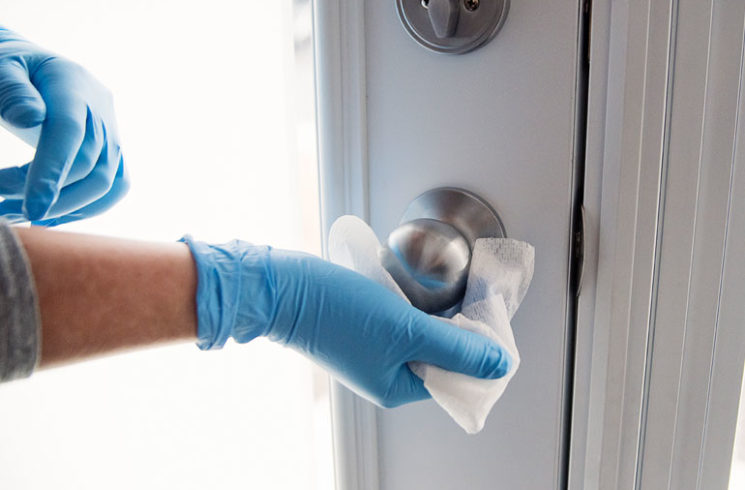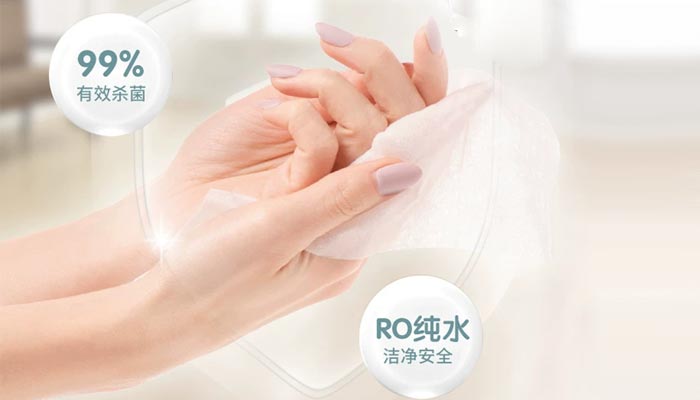Do Disinfecting Wipes Kill the Coronavirus?
- Categories:Industry News
- Author:
- Origin:
- Time of issue:2020-09-03
- Views:0
(Summary description)Hygienic wipes (wet wipes) are emerging personal hygiene products. With the improvement of the quality of life of domestic consumers, wet wipes, like ordinary paper towels, have gradually become neces
Do Disinfecting Wipes Kill the Coronavirus?
(Summary description)Hygienic wipes (wet wipes) are emerging personal hygiene products. With the improvement of the quality of life of domestic consumers, wet wipes, like ordinary paper towels, have gradually become neces
- Categories:Industry News
- Author:
- Origin:
- Time of issue:2020-09-03
- Views:0
The coronavirus has sparked people’s interest in disinfecting products. In our battle to beat this pandemic into submission, we’re buying germ-killing products, including disinfecting wipes, like they’re going out of style.
But you can’t just buy disinfecting wipes, swipe them on everything and expect your home to be coronavirus-free. You’ll want to make sure the wipes you buy can actually kill viruses and germs. You’ll also want to ensure that you’re using them the right way.
Infectious disease specialist Carla McWilliams, MD, explains what you should know about disinfecting wipes, including how to use them safely and effectively.
What are disinfecting wipes?
These disposable cleaning wipes have a germ-killing solution on them. “They’re designed to kill viruses and bacteria on hard surfaces like doorknobs, counters and TV remotes,” says Dr. McWilliams. They don’t work on soft surfaces like clothing or upholstery.
The germ-killing ingredient on disinfecting wipes is a chemical pesticide, so you shouldn’t use them on your skin. You also shouldn’t use them on food. (For example, don’t clean an apple with one before you eat it.). The word “pesticide” may be concerning, but don’t panic. As long as your disinfecting wipes are registered with the Environmental Protection Agency (EPA), they’re safe to use as directed.
Do disinfecting wipes kill the coronavirus?
Many wipes do, but just because they say “disinfecting” don’t assume they will kill the coronavirus. So how can you know for sure?
“The label will tell you what germs the wipes can kill, so look for the coronavirus on the label,” says Dr. McWilliams. “There are hundreds of EPA-registered disinfectants that can kill the coronavirus. Don’t worry about one particular ingredient or brand. Just read the label.”
To find out which wipes kill the coronavirus, check the EPA’s running list of disinfectants for the coronavirus.
Disinfecting wipes vs. antibacterial or sanitizing wipes
Disinfecting wipes are for hard surfaces in your home. If your wipes say “sanitizing” or “antibacterial,” they’re probably for your hands.
“Antibacterial wipes kill bacteria, not viruses,” says Dr. McWilliams. “They’re usually for your hands, but read the directions to be sure. And the coronavirus is a virus, not bacteria, so antibacterial wipes may not kill it. That’s why reading the label is so important.”
“Sanitizing wipes” may be alcohol-based wipes for your hands, or they could be disinfecting wipes for surfaces. Read the label so you know what you’re getting.
How to use disinfecting wipes the right way
Disinfecting wipes contain chemicals, so they have safety steps to follow. Use them as directed to make sure those unwelcome germs are gone for good.
- Check for EPA approval. Look at the fine print on the package. EPA-approved products have a long EPA registration number on them.
- Read the directions and warnings. With all the different disinfectants out there, it helps to know what you’re working with. In most cases, you need to wear gloves to protect your skin. The directions also tell you what to do if you accidentally get some of the cleaning solution in your eyes.
- Remove visible gunk or dirt first. Use a rag with soap and water or paper towels. You may want your gloves for this step.
- Scrub with the wipe and let the disinfectant do its job. The entire surface should be wet with the disinfectant. But keep in mind that the solution needs time to work. The directions should indicate the “contact time, which is the amount of time that you should leave the disinfectant on the surface without drying or rinsing it. Don’t touch it until that contact time is up.
- Toss disposable gloves or wash reusable ones. Wash your hands with soap and water after removing them.
- Put the wipes away. Keep them out of reach of children and pets.
After the contact time is up, you can rinse off the disinfectant if you wish. “Definitely rinse it off if the surface will come into contact with food,” Dr. McWilliams says. “You don’t want to accidentally ingest the disinfectant.”
Are disinfecting wipes safe?
If you follow the steps above, they are. But stick with one product. Mixing two different household cleaners — even so-called natural cleaners — can create toxic fumes. These fumes can cause:
- Wheezing.
- Coughing.
- Trouble breathing.
- Eye, nose, throat and lung irritation.
- Nausea.
- Pneumonia.
If you’re exposed to cleaning fumes from mixing chemicals, get everyone out of the house. If anyone feels unwell, get them medical care or call 911.
Can I just use soap and water?
Maybe you want to clean the old-fashioned way. Do you really have to use a disinfectant, or will a rag and some soapy water be enough?
“If you want to kill the coronavirus, you’re better off using something with disinfecting ingredients,” Dr. McWilliams says. “There’s nothing wrong with soap and water for everyday cleaning. But it’s hard to know whether you killed all the germs when you clean with soap and water alone.”
What about bleach?
Bleach is a notorious germ-killing machine. But it’s also very harsh.
“Bleach is effective if you dilute it correctly,” says Dr. McWilliams. “Don’t use it full strength. But even diluted, it can ruin surfaces and fabrics, so it’s not practical in many cases.”
Some disinfecting wipes contain bleach as their active ingredient. Check the label. Never mix bleach with other cleaners or chemicals, including natural cleaning products.
Cleaning is good, but it’s not a cure-all
The coronavirus has made us hyperaware of germs. Go ahead and wipe your household surfaces with EPA-approved disinfecting wipes. But cleaning alone can’t keep the coronavirus away.
“Wear a mask, wash your hands and practice social distancing to help prevent the spread,” Dr. McWilliams says. “That’s more important than your cleaning products.”
Scan the QR code to read on your phone

Our products are mainly sold to Beijing,Tianjin,Shanghai other provinces and cities,and exported to the United States, Canada, France, Singapore, Saudi Arabia and more than 30 countries.
ADDRESS: 3 Chenguang Rd, Jinghua St, Machang Economic and Technology Development Zone, Qingxian Dist, Cangzhou City, Hebei Province, China
PHONE: +86-317-4328328
EMAILS: jennifer@cnwipes.com
QUESTIONS? CONTACT US
WHAT WE OFFER
Copyright: Cangzhou Juyuan Sanitary Products Co ., Ltd. 冀ICP备20009278号-3 Power by 300.cn





 Customer
Customer
 Top
Top




